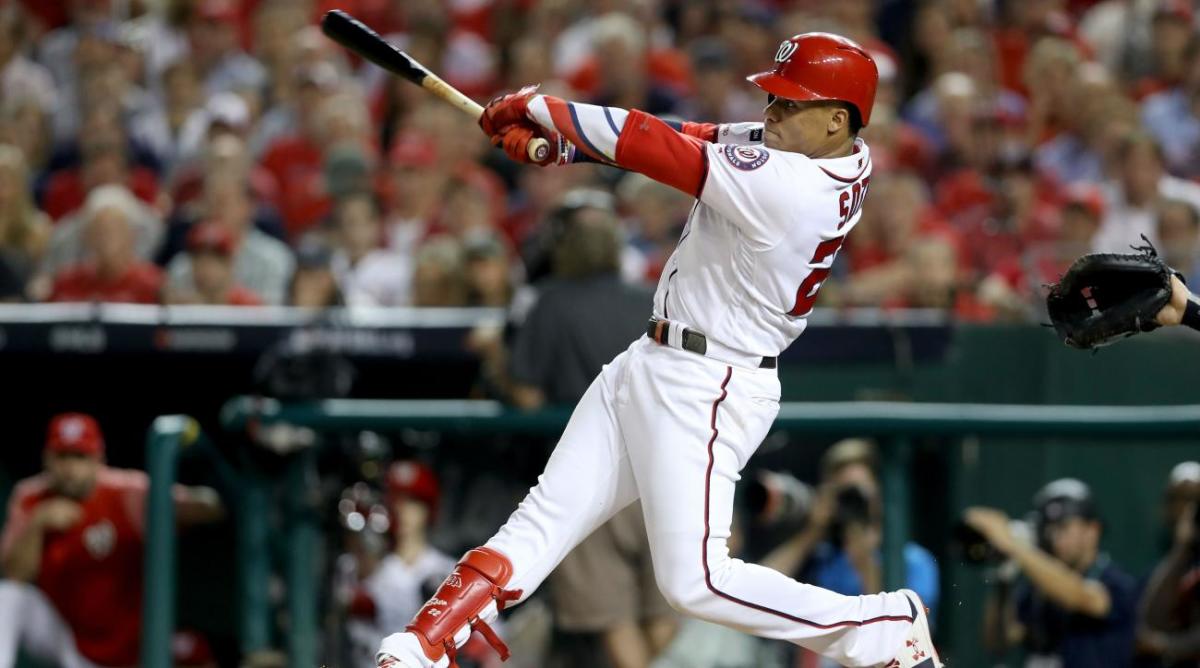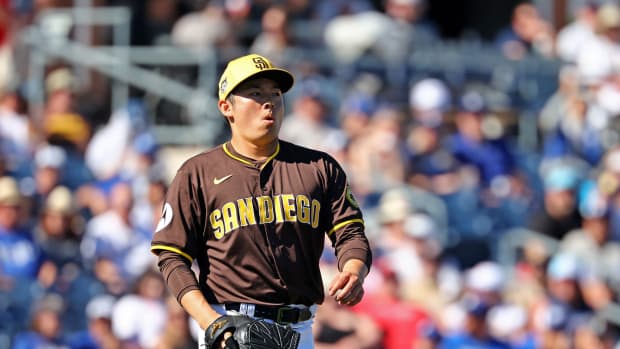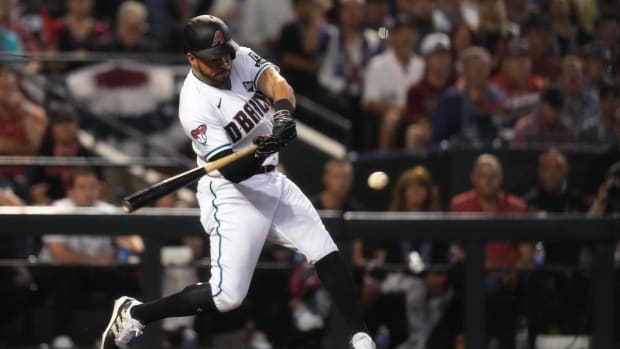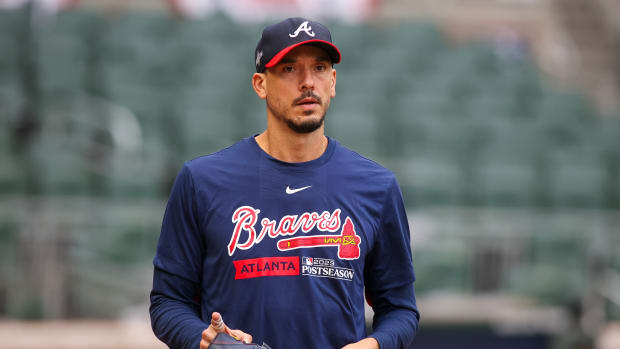
If Only for One Game, Nationals Ditch Their Tortured Postseason History
The Nationals’ relationship with October heartbreak is so intimate as to feel like a foundational feature of the club. What this history lacks in duration is recovered in intensity. The sheer variety of agonies—meltdowns! blow-outs! blown calls! missed chances!—cover the miserable truth at the core: The Nationals have never won a postseason series in franchise history, and, all logic and reason and reality of roster construction aside, it feels easy to believe that they never will.
The 2019 wild-card game looked like it would fit this narrative. It would be The One That Strasburg Didn’t Start, or The One That Scherzer Lost In The First, or maybe just The One That Meant Only A Night Of Heartbreak Instead Of A Whole Series’ Worth. But it would be bad. It seemed like it almost had to be. What other path was there? The Nationals were losing to the Brewers, 3-0, by the end of the second. Max Scherzer had allowed a home run in each of the first two frames, something that he hadn’t done since 2011. A solo shot in the third from Trea Turner to make it 3-1 could only arouse so much confidence. This felt like familiar territory. It felt like the set-up to a loss.
Scherzer settled in; Stephen Strasburg replaced him in the sixth, executing the club’s pre-discussed plan of piggybacking its top starters to make it in a must-win environment, but it looked as if it may have been too late. The Nationals went down 1-2-3 in the sixth and again in the seventh. They were still losing 3-1, and other than Turner, they’d had only three baserunners. Their win expectancy had not climbed over 30% since the Brewers’ home run back in the second. Milwaukee’s best pitcher—and baseball’s strikeout-rate leader—Josh Hader was poised to take the mound next. This one wasn’t over. It just felt as if it may as well have been.
The Nationals’ eighth inning initially didn’t do much to alter this sense of doom. Victor Robles struck out. Five outs to go. Then Michael A. Taylor, pinch-hitting for a yanked Strasburg, became the subject of a replay review—apparently struck where his hand met his bat, ruled a hit-by-pitch, before a challenge to make sure that it had not actually been a foul. As the officials deliberated, the crowd tunneled into the agonizing liminal space between a pair of alternate realities. This was the difference between a runner on first with one out and empty bases with two outs, which is functionally quite similar to the difference between life and death. But, eventually, the call came back: Life. It was, after all, a hit-by-pitch.
With Taylor on first, however, Trea Turner struck out. Four outs to go. Dave Martinez called for another pinch-hitter in Ryan Zimmerman, to be followed by Anthony Rendon. This meant that the franchise’s veteran cornerstone was up—the most fantastical choice for a fairy-tale hero—with the team’s best hitter on deck, which was logically about the best that the club could wish for in this situation, and emotionally, given the history and context, the perfect set-up for an absolutely devastating loss. Now this was a Nationals’ playoff game. It would have been too easy to simply fade away after having fallen behind early; that would have been painful, yes, but it would have lacked the particular flavor of torment that has come to define the Nationals in October. This? An eighth-inning whisper of a chance suddenly dead at the hands of one beloved player or another? This was more familiar.
Until it wasn’t. Zimmerman’s bat cracked on a 2-1 fastball, splintering as the ball made a lazy arc into shallow centerfield, dropping out of the defense’s reach. Rendon’s plate appearance swung from 3-0 to 3-2 to, at last, a walk. The bases were loaded. The tying run was on second, the winning run was on first, and 20-year-old Juan Soto was at the plate.
Soto made contact on a fastball. And it seemed like the end; this was the torment, this was the misery of a perfect what-if, this was the moment of the crash. The ball fell, but just in front of outfielder Trent Grisham—time for one run to score, maybe, but not the necessary two, and not a miraculous three. This was, for an interminably and infinitely painful millisecond, all. Until the ball rolled under Grisham’s glove.
It was scored as an error, Soto was thrown out before he reached third, and it didn’t particularly matter. All that mattered was that the three runners had scored. The Nationals were winning, against both the Brewers and their own organizational burden of seemingly insurmountable and frequently irrational misfortune. The ninth passed without incident, even with the essential nerves of turning to the ‘pen to close it out, and that was, at last, it: Nationals 4, Brewers 3.
The Nationals have still never won a postseason series. But, for now—for once—that doesn’t matter.


































